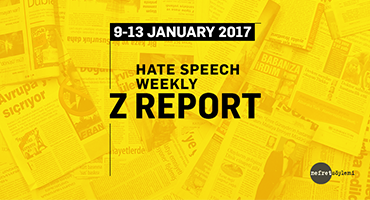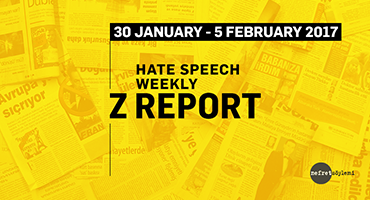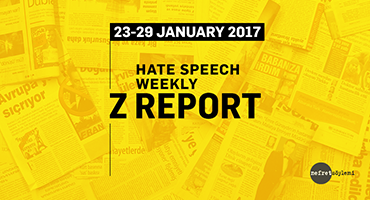Within February 19-25, 2018, four articles that generate hate speech were selected. You can find these articles that contain hate speech against Armenians, Greeks in Turkey and Syrians as well as the analyses written about them below.1
1.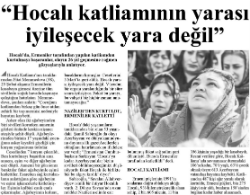
In the article published in Diriliş Postası with the title “The scars of Khojaly massacre cannot be healed”, Armenians are associated with violence and enmity between peoples is incited with the remarks as the following: “The survivors of the massacre carried out by Armenians in Khojaly still tell about the events in tears even after 26 years”, “escaped from Nazis, killed by Armenians”.
|
2.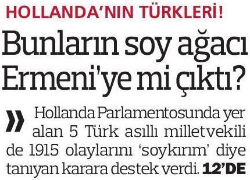
The article published in Türkiye with the title “Do they have Armenian origins?” on the front page and with the title “Degeneracy” inside targets Dutch deputies with Turkish origin who gave yes vote to the bill for “recognizing 1915 Armenian massacres in Anatolia as genocide” in Dutch parliament. The newspaper associates Armenian identity with “degeneracy” and symbolizes it as an expression of insult.
|
3.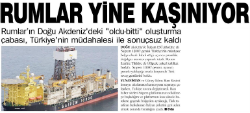
The article published in Ortadoğu with the title “Greeks are asking for it again” attributes political issues between states to the entire national identity. Thus, it incites the existing prejudices against Cypriot Greeks.
|
4.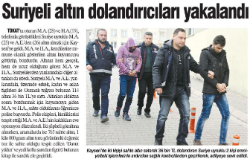
In the article published in Yeniçağ with the title “Syrian gold fraudsters caught”, the national identity of the suspect is highlighted though it is not directly related to the incident. The article creates a negative perception of Syrians by associating them with crime.
|
1. Within the scope of the media monitoring work focusing on hate speech, all national newspapers and around 500 local newspapers are monitored based on pre-determined keywords (e.g. Traitor, apostate, refugee, Christian, Jewish, separatist, etc.) via the media monitoring center. While the main focus has been hate speech on the basis of national, ethnic and religious identities; sexist and homophobic discourses are also examined as part of the monitoring work.


